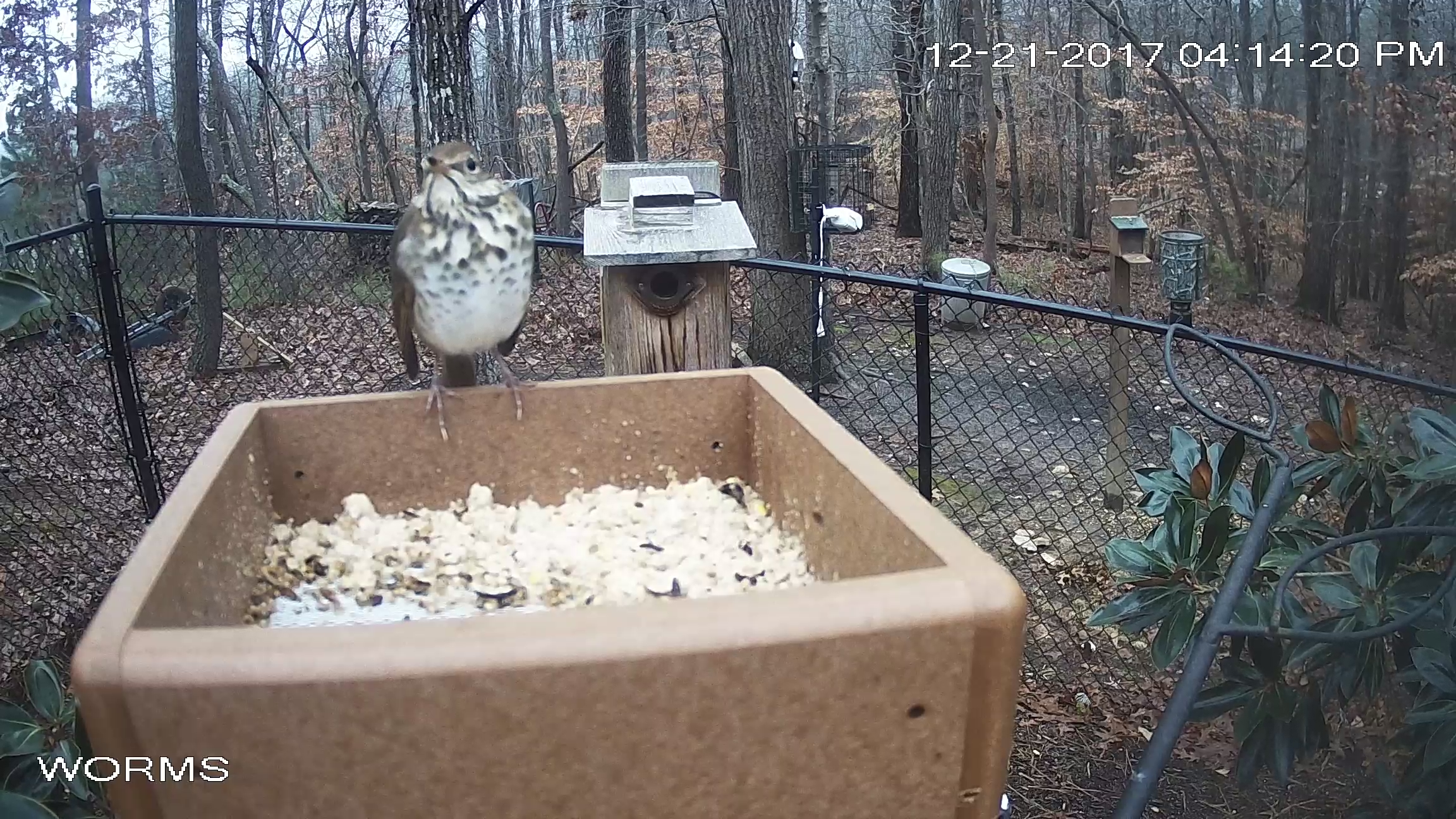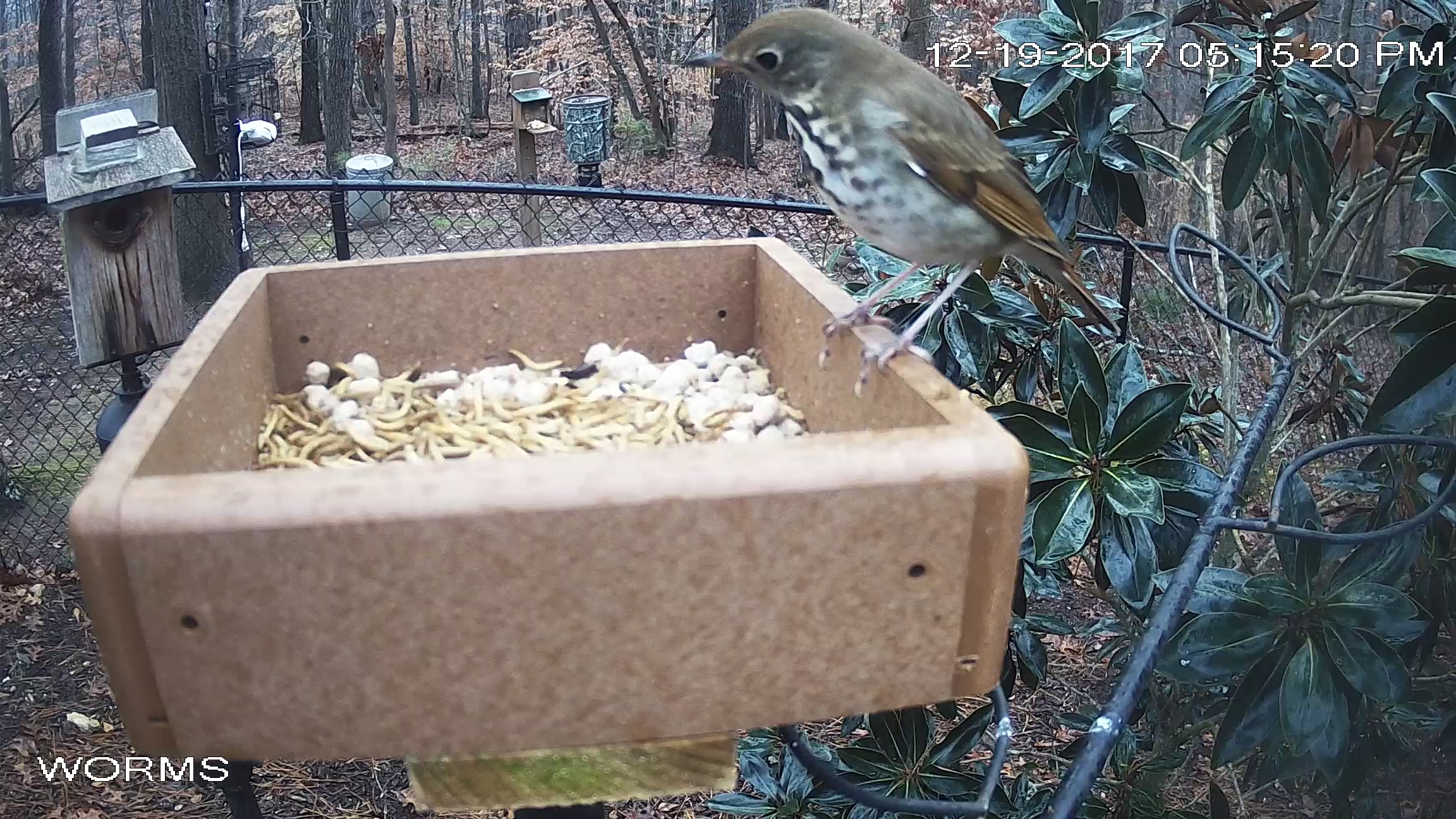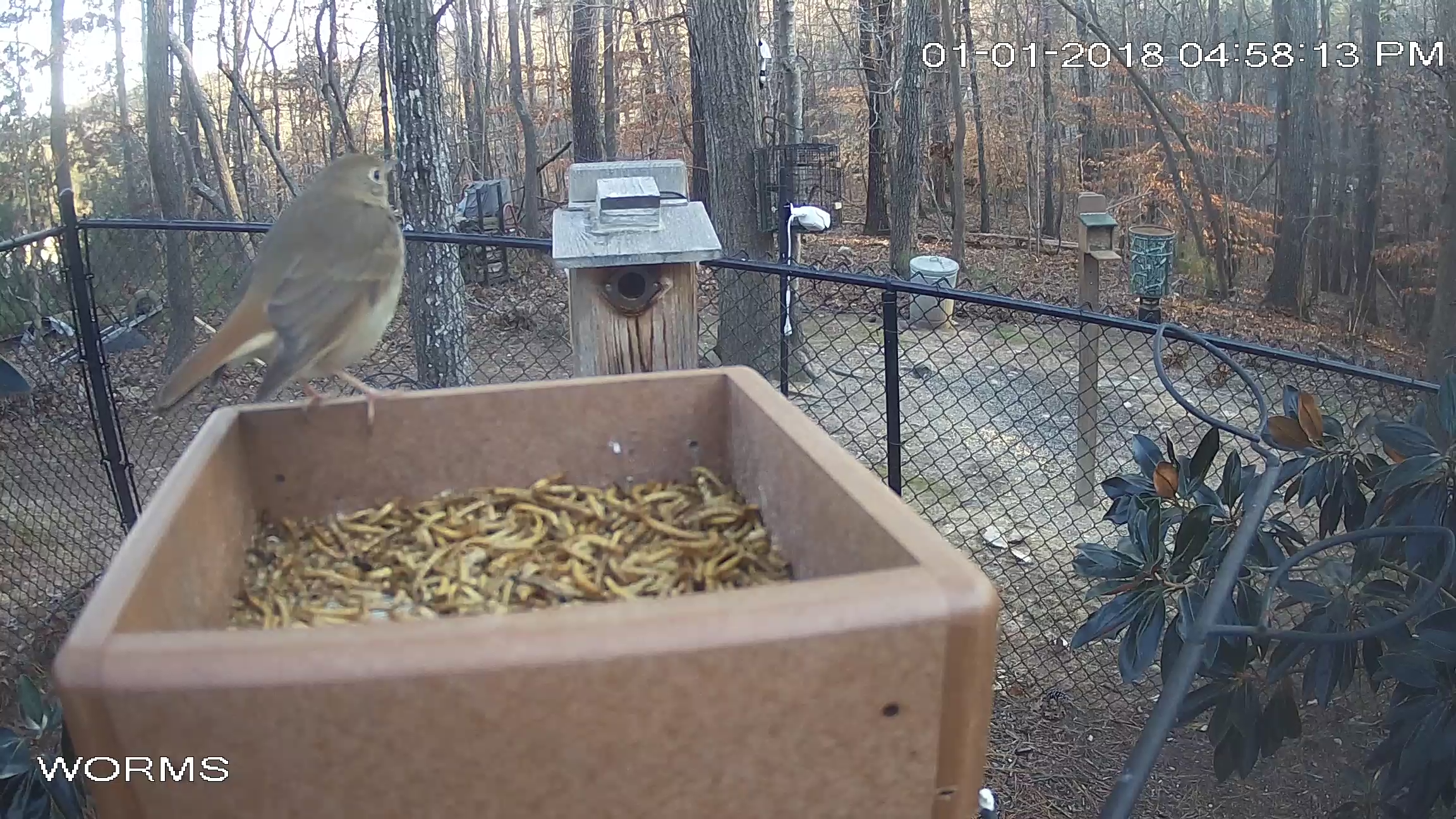I chuckle every time I see Vermont's state bird, the Hermit Thrush, perch on the mealworm feeder. He migrated south for warmer temps and more-plentiful food. I think the Thrush's face says it all:
It's a sad, sad day. The Retreat's temps are dropping into the teens at night ... and the menu stinks! Seriously? Who over-cooked these mealworms?! *



*The birds get a bit of an attitude when I switch from live to dried mealworms (which I do soon after fledglings mature in the late summer). They'll descend on the worm feeder, expecting a juicy tidbit. One-by-one, they'll toss the dried worms overboard in search of something squishy. Eventually they leave without eating a morsel -- a pile of dried mealworms on the ground. When alternate food sources begin to disappear, however, the struggle ends. Most of the mealworm crowd chows down. I'm experienced at this. I raised teenagers once upon a time.